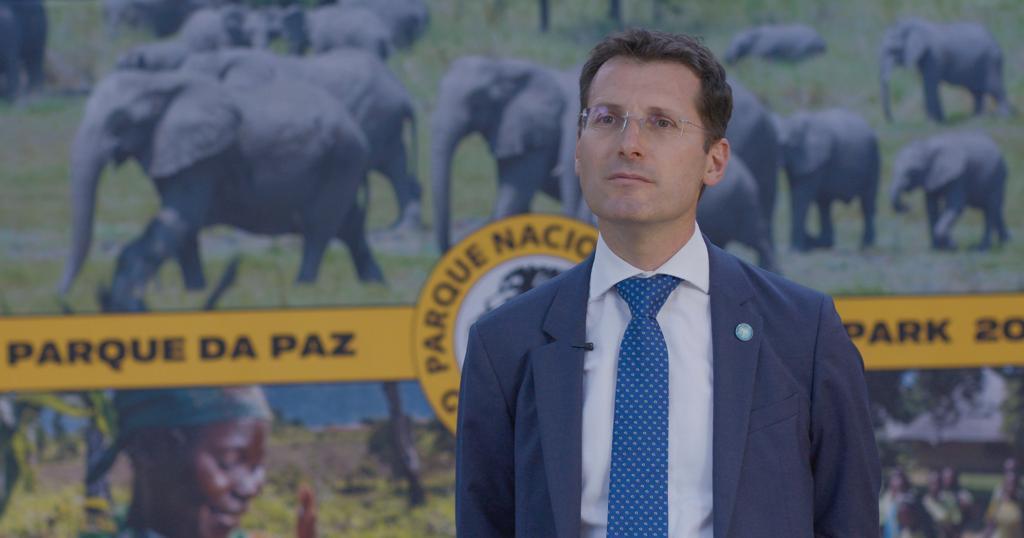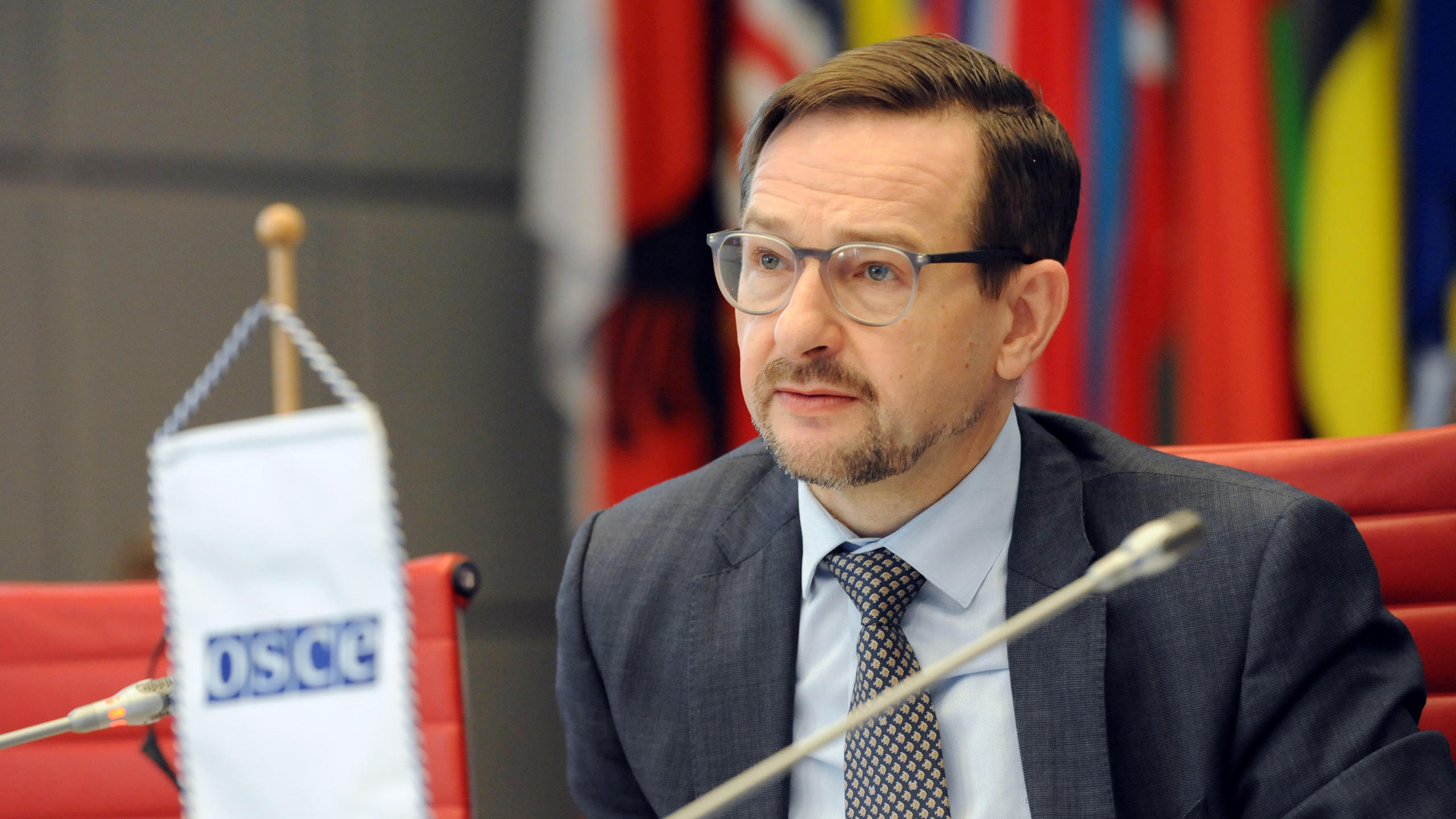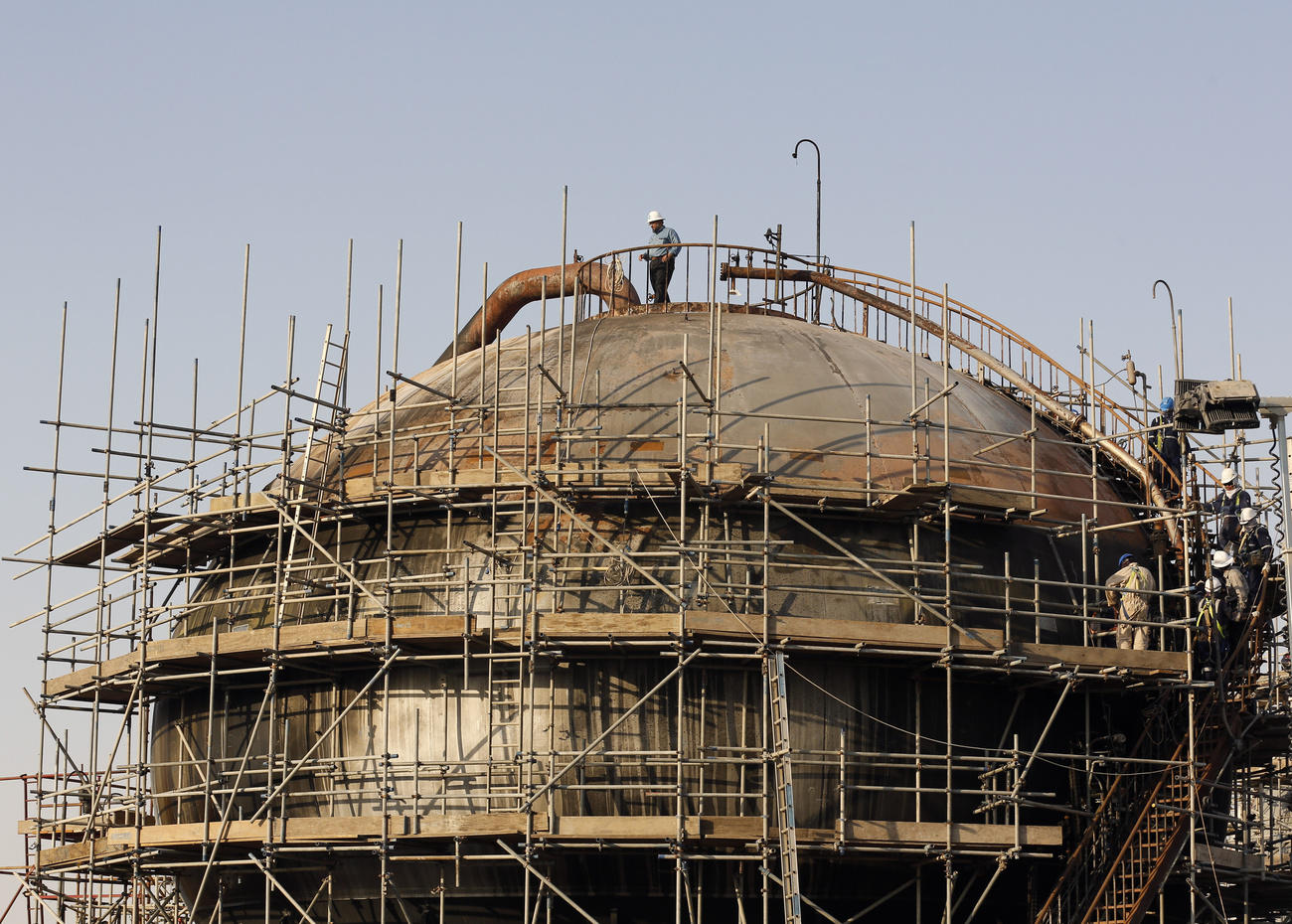‘Quite an adventure’: How the Swiss brought peace to Mozambique

Mirko Manzoni can hardly believe he has a peace deal for Mozambique in his pocket. As lead mediator, he spent three years shuttling between the country’s president and rebels in the bush, and it was not easy. But he says the accord finally signed in August could be a model for Swiss good offices.
“I think it is probably the first time that one single country has been able to really design a peace process as we did, implement it and reach the point of signing the peace agreement,” says Manzoni. “Three years ago, I could not have imagined it, but it happened.”
The outgoing Swiss ambassador to Mozambique is being hailed as the architect of the peace deal, although he stresses he did not work alone. “Nothing can be done alone in these kinds of things,” he told swissinfo.ch. “We were a small team of brave persons.”
Now the 51-year-old says he feels responsible for what happens next, because it is easier to sign a peace agreement than to ensure it holds. This is something he will be helping to do in his new post as the UN Secretary General’s Personal Envoy for Mozambique, which he is expected to take up in November. And lasting peace will have a major impact, he says.
“It will be a leading country in the region if they are able to keep this peace.”
Years of conflict
Mozambique is still scarred by a 16-year civil war that broke out shortly after independence from Portugal in 1975. A UN-brokered peace deal brought an end to fighting between the ruling FRELIMO party and RENAMO rebels in 1992. But although the rebel movement became a political party, grievances remained, and in 2012 RENAMO took up arms again, undermining the economy with targeted guerrilla attacks.
When Manzoni arrived in his first ambassadorial post in 2014, there had already been some unsuccessful efforts to broker a peace deal, including by the European Union. He was asked to be the mediator, and in 2016 the Mozambican government of President Felipe Nyusi officially requested Swiss good offices.

But RENAMO’s historic leader Afonso Dhlakama would not come to the capital Maputo, so Manzoni’s team had to go to him.
“It was not a five-star hotel, it was purely the bush, in the middle of the forest,” the mediator recounts. The journey of over 1,000 kilometres involved taking several flights, including on small aircraft, then four-wheel drive vehicles, walking and using bikes.
“So it was quite an adventure,” Manzoni continues, pointing out that the lengths his team was willing to go to showed their willingness to support and help the peace process.
“I think that was an important way to build trust with the leader of the opposition at that time, Dhlakama,” he says.
Being Swiss also helped, notes Manzoni – at least in part.
“We have a culture of dialogue, we don’t want to impose ourselves, we prefer to discuss. That was important.” He says he was always “very polite but very frank” with both parties in the negotiations.
“I was as I am, I was not trying to be another person and that was putting them in a very easy situation.”
The mediating team included also Neha Sanghrajka of Kenya, who has worked with former UN Secretary General Kofi Annan; Jonathan Powell of the UK, former chief of cabinet to Tony Blair; and Eduardo Namburete, a Mozambican member of parliament trusted by Dhlakama. Manzoni says he got RENAMO to agree to the team. This was also a matter of security for him, rather than going to the bush alone.
Dhlakama dies
One of the most dramatic moments in the peace process was when Dhlakama died suddenly in May 2018. “When after more than two years of negotiation he died, honestly it was a black hole, as if everything was lost. Even now I feel the emotion, because he was a strong man, and you could not expect him dying like that,” says Manzoni. Dhlakama and Nyusi were the key players, and now one of them was gone. The negotiations were advanced, but nothing had been signed.
Both sides chose to continue, however, and it was the new RENAMO leader Ossufo Momade who signed the peace accord with President Nyusi on August 6, 2019.
“I was regretting a little bit that Dhlakama was not there, because at the end of the day Dhlakama was, with Nyusi of course, the one that started all this process,” Manzoni says of the signing ceremony. “I think they both deserve something. If there is a Nobel Prize, why not?”
Manzoni says one of the best moments came on August 1, Swiss National Day, when the final cessation of hostilities agreement was signed in the rebel stronghold of Gorongosa Park. That was a “fantastic day”, he says, with the date chosen on purpose “in honour of Switzerland”.
‘Switzerland should be proud’
During the negotiations, Manzoni says he sometimes had to fight for support from the Swiss foreign ministry, but that he always felt it from the highest levels “which is what counted”. He also says he understands some resistance from colleagues who doubted that a single country with a very small team could work like a UN peacekeeping operation.
“Some might have thought we were crazy.”
Now that the peace agreement has been signed, he says Switzerland and the foreign ministry should be proud.
“We should try to learn from what was done. I think it can be replicated because it was done in a very simple manner, not with big machinery, just a lot of goodwill.”
Another lesson, he thinks, is the discretion surrounding the mediation.
“We remained very discreet until the very last minute, and this was one of the keys to the success of the process.”

In compliance with the JTI standards
More: SWI swissinfo.ch certified by the Journalism Trust Initiative













You can find an overview of ongoing debates with our journalists here . Please join us!
If you want to start a conversation about a topic raised in this article or want to report factual errors, email us at english@swissinfo.ch.